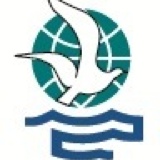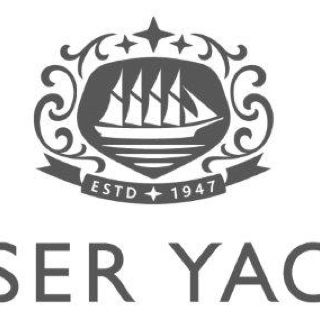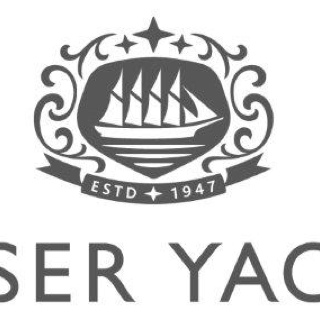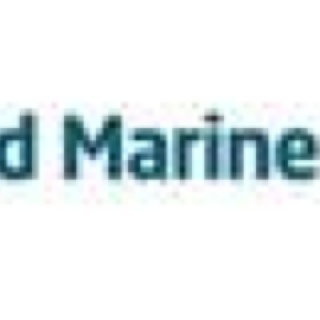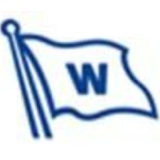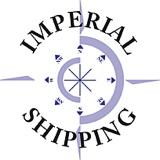-
Welcome to this audit scope ISM for Tranship operated vessels. You are assigned to conduct an internal ISM audit on board one of our vessels.
An internal audit is a formal documented verification on board of a ship (or in a department) to determine whether the activities that are carried out, are in accordance with written rules, regulations, work instructions, policies, procedures, etc.
In this specific audit the focus is on the ISM Code, SOLAS, MARPOL and Flag State requirements.
Every vessel and office is facilitated with a Safety Management System. The scope is a guide through the ISM related Manuals and indicates possible measuring items, which will cover the most critical points.
0. General information
General information
-
Ship's name
-
Date of audit
-
Date of report
-
Auditor
-
Persons interviewed (name + function)
-
Referenced documents/publications
-
Add media
1. Documentation - bridge
1.1 Internal publications (MM-1.2, section 1.2.4.3)
-
Are ISM Manuals up to date? Also check other Company issued Manuals, such as Emergency Manuals, SOPEP, SSP, etc.
-
Findings
-
Add media
1.2 External publications (SM-LoP)
-
Check the List of Publications with actual publications available on board.
-
Findings
-
Add media
1.3 Emergency arrangements (Emergency Manual, memo 004/11, MM-1.4, section 1.4.1.2)
-
Check if Emergency Manual is available and up to date.<br>Is a list of Harbour Emergency contacts available? Is a list of office contacts with DPA/CSO posted?<br>Is an actual Emergency Response Plan available (if engaged in a survey project)
-
Findings
-
Add media
1.4 Company policies (MM-1.3)
-
Policies, enlisted to be posted in a public place, such as messroom, hallway, etc.
-
Findings
-
Add media
1.5 Vessel's certificates (MM-4.3, deck folder 1)
-
Check if certificates are not overdue. If overdue, check if office is informed.
-
Findings
-
Add media
1.6 Job descriptions
-
Are job descriptions available to all crew and is the crew aware of this?
-
Findings
-
Add media
2. Communication
2.1 Working language (MM-1.5, SM-10.1)
-
Confirm that the working language is English.
-
Findings
-
Add media
2.2 Revision and Memo letters (SM-10.1, section 10.1.2)
-
Check the Revision Manual for latest Revision or memo letters and signatures.
-
Findings
-
Add media
3. Purchasing
3.1 Purchasing procedures (MM-1.6, deck folder 5)
-
Are order forms correctly filled in and filed? Are completed orders closed as required?
-
Findings
-
Add media
4. Incident reporting and evaluation
4.1 Previous audits and NC's (Deck folder 11, section 3 and 4)
-
Are previous NC's from internal audits closed properly?
-
Findings
-
Add media
4.2 Incident reporting (MM-1.7, section 1.7.3)
-
Are incidents promptly reported to the office/DPA? Check if incident reports are correctly filed as required and that preventive measures are taken.
-
Findings
-
Add media
4.3 Master reviews (MM-1.7, section 1.7.2.1)
-
Are Master reviews available (annual requirement) and Management review as well?
-
Findings
-
Add media
5. Port operations
5.1 Vessel entry (SM-1.1)
-
Is the gangway safe to enter and secured? Is a protective net available?
-
Findings
-
Add media
5.2 Ship's journal in port (SM-1.1)
-
Are relevant entries made in the Ship's Journal during port calls?
-
Findings
-
Add media
5.3 Mooring toolbox talks (SM-1.2)
-
Are toolbox talk notes available prior to mooring/unmooring operations?
-
Findings
-
Add media
5.4 Bunkering (SM-1.4)
-
Are bunkering operations executed in accordance with regulations? <br>Check for toolbox talk notes, bunker delivery notes, bunkering safety checklists, etc.
-
Findings
-
Add media
5.5 Fuel MSDS (SM-1.4)
-
Check if an MSDS is received and filed with bunker delivery note. Verify that this is done for every bunkering.
-
Findings
-
Add media
5.6 MARPOL sampling program (SM-1.4)
-
Verify that MARPOL samples are taken en stored as appropriate on board for at least 12 months.
-
Findings
-
Add media
5.7 Inventory listings (SM-1.5)
-
Verify that Inventory lists are available and up to date.
-
Findings
-
Add media
6. Deck operations
6.1 Survey procedures (SM-2.1, section 2.1.2)
-
Verify that relevant survey procedures are available on board to the marine crew. These procedures are issued by the survey Company.
-
Findings
-
Add media
6.2 Deck equipment (SM-2.2)
-
Verify that equipment on deck is certified for use and that the Master has access to or copies of relevant certificates.
-
Findings
-
Add media
6.3 Lifting equipment (SM-2.3)
-
Verify on board that lifting gear is color coded, that lifting instructions are posted near cranes.
-
Findings
-
Add media
7. Bridge operations
7.1 Bridge equipment (SM-4.2, section 4.2.1)
-
Verify that bridge equipment is in good working order?<br>Magnetic compass, deviation card available?<br>Echosounder, date/time recorded?
-
Findings
-
Add media
7.2 Voyage planning (SM-4.2, section 4.2.2, SM-1.3)
-
Verify that Voyage planning is executed in accordance with applicable procedures. Review previous plannings and departure/arrival checklists. Verify that physical structuren are not used as waypoints.
-
Findings
-
Add media
7.3 Information cards (SM-4.2, section 4.2.3)
-
Verify that manoeuvring characteristics are available on the bridge. <br>Check that a Pilot card is available. This may be a laminated copy form the Bridge Procedures Guide with all relevant data from the ship.
-
Findings
-
Add media
7.4 Watch schedules (SM-4.2, section 4.2.4)
-
Check that the Master has drafted a Watch schedule. This schedule to invulde bridge Personnel, Engine room personnel and look outs for dark hours. The schedule should be posted in a public arena and signed by the Master.
-
Findings
-
Add media
7.5 Master's Standing Orders (SM-4.2, section 4.2.5)
-
Verify that the Master has issued his own Standing Orders and that these are signed by the current Bridge team members. Check that the Standing Orders don't conflict with Company Regulations.
-
Findings
-
Add media
7.6 Chart correction (SM-4.2, section 4.2.10, NP294)
-
Verify that charts in use are updated. Check that relevant charts are available.
-
Findings
-
Add media
7.7 Toolbox talk anchoring (SM-4.4, section 4.4.1)
-
Look for records of toolbox talkshow prior to anchoring operations (if any).
-
Findings
-
Add media
7.8 Logbooks and documentation (SM-4.5)
-
Check journals, night order books, radio logs, etc. for relevant entries.
-
Findings
-
Add media
7.9 500 meter zone entries (SM-4.6, SM-4.6-f1)
-
Verify that 500 meter zone entries are in accordance with procedures. Checklists to be reviews for correct use.
-
Findings
-
Add media
7.10 Stability (SM-6.1)
-
Verify that stability calculations are made before departure and during a voyage.
-
Findings
-
Add media
8. Engine room operations
8.1 Engine room work instructions (SM-5.1, section 5.1.1)
-
Check for relevant work instructions to be available in the engine room. Verify if engine room personnel is familiar with these instructions.
-
Findings
-
Add media
8.2 Chief Engineer Standing Orders
-
Check if the Chief Engineer has issued Standing Orders for the engine room. NOTE: this is not a requirement within the SMS!
-
Findings
-
Add media
8.3 Engine room logbooks (SM-5.2)
-
Are logbooks correctly filled in: <br>- ER logbook<br>- Oil Record Book (entry instructions available in front, focus to internal transferring of oil)<br>- CFK Logbook (See SM-5.4 for specific requirements)
-
Findings
-
Add media
9. Environmental protection
9.1 SOPEP materials (SOPEP, SM-7.1)
-
Check if the list of minimum SOPEP material in the SOPEP Manual is available on board.
-
Findings
-
Add media
9.2 SOPEP drills and exercises (SM-7.1, SM-9.2)
-
Check that SOPEP drills are carried out at least every thee months
-
Findings
-
Add media
9.3 Garbage segregation (Garbage Management Manual)
-
Check that garbage is collected separately. All ships to have colored bins on board.
-
Findings
-
Add media
9.4 Discharge records (Garbage Management Manual)
-
Verify that Garbage record sheets are kept as appropriate on a monthly basis (last version to include latest MARPOL requirements from 2013)
-
Findings
-
Add media
10. Enrolment on board
10.1 Crew familiarization (SM-9.1, section 9.1.2)
-
Check if familiarization upon arrival is done, in accordance with procedures. Verify that familiarization checklists are kept in a confidential way on board.
-
Findings
-
Add media
10.2 Handovers (SM-9.1, section 9.1.3 to 9.1.7)
-
Verify that handovers are available for:<br>- Masters, Chief Engineers, Chief Officers and 2nd Engineers, Cooks, 2nd Officers, Electricians (mandatory)<br>- Oilers, bosuns, Steward (recommandeer, not mandatory)
-
Findings
-
Add media
11. Drills, exercises and on board training
11.1 Drills execution and documentation (SM-9.2, drill matrix, deck folder 12)
-
Verify whether drills are conducted in accordance with the drill matrix and if drills are documented and filed in accordance with procedures.
-
Findings
-
Add media
11.2 Findings from drills
-
Are findings from drills adressed properly or documented as NC /Observation?
-
Findings
-
Add media
11.3 On board training (SM-9.2, section 9.2.3)
-
Verify that on board training is undertaken and recorded.
-
Findings
-
Add media
12. Hours of rest
Hours of rest
-
Verify that hours of rest are recorded monthly and comply with the STCW Code, Part A, Chapter VIII, Fitness for duty.
-
Findings
-
Add media
13. Safety Committee on board
13.1 Appointment Safety Committee / Ship Safety Officer (SM-10.2, section 10.2.1)
-
Has the Master appointed a Safety Committee and a Ship Safety Officer?
-
Findings
-
Add media
13.2 Follow up safety items (SM-10.2, section 10.2.3)
-
Are items and findings in Safety Committee reports properly feedbacked and dealt with?
-
Findings
-
Add media
14. HSE general
14.1 Smoking policy (SM-11.2)
-
Verify that vessel is smoking free and that dedicated smoking areas are assigned. These areas to be equiped with means of disposal (ashtrays, bins with sand, etc..
-
Findings
-
Add media
14.2 Permit to Work systems (SM-11.4 to 11.8 + forms)
-
Verify that PtW forms are used as descriped in the Shipboard Manual. Ensure that risk assessments are part of work permits (otherwise not valid). Also verify that the lock out tag out (LOTO) equipment is on board and in use.
-
Findings
-
Add media
14.3 Handling of chemicals (SM-11.9)
-
Ensure that chemicals are separately stored on board. Storage area to be marker as such. Verify who is appointed as responsible person by the Master. Check that Material Safety Data Sheets (MSDS) are available at store and in hospital (if available). Check if relevant PPE is available at the store (goggles, gloves, etc.).
-
Findings
-
Add media
14.4 Food handling areas (SM-11.10, section 11.10.5)
-
Food handling areas (galley's) to be clean and tidy. Colored cutting blades available. Freezers and coolers: temperatures to be recorded on a daily basis.
-
Findings
-
Add media
14.5 Monthly HSE inspections (SM-11.10, section 11.10.6)
-
Verify that the Master inspects the vessel in accordance with requirements within Shipboard Manual. Inspections and findings to be noted in ship's log.
-
Findings
-
Add media
14.6 Water sampling (SM-11.10, section 11.10.7)
-
Check if the sample was taken within the last four months. Verify whether fresh water activities such as, bunkering, sampling, adding of chemicals, etc. are recorded in a log.
-
Findings
-
Add media
15. Risk assessment
15.1 Risk assessments (SM-11.11, SM-11.11-F1, deck folder 13)
-
Verify if risk assessments are made by the crew for day to day jobs, other than work permit related risk assessments.
-
Add media
